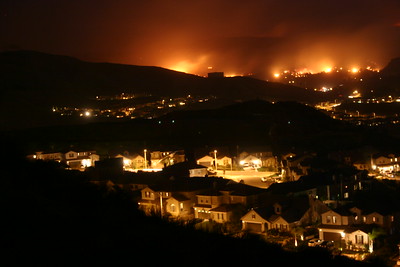New Report: California Climate Risk and Insurance
UCLA & UC Berkeley Researchers Issue Report on Climate Change and Insurance in California

(This post is part of a series on the issue of climate change and insurance that my colleague Sean Hecht and I are writing, inspired by a symposium that the law schools co-organized with the California Department of Insurance earlier this year. You can find more information on the symposium here. My initial post is available here, and Sean’s prior posts are available here and here.)
As Sean Hecht and I have discussed in recent posts, the insurance sector will play an increasingly important role in managing the new and evolving risks that climate change poses throughout California, and policymakers will face both challenges and opportunities as they seek to further integrate insurance considerations into California’s climate policy framework.
Our July symposium, which CLEE and the Emmett Institute co-organized with the California Department of Insurance and UN Environment’s Principles for Sustainable Insurance, brought together leading experts across climate policy, climate science, the insurance sector, local government, and more to address these challenges and opportunities. Today, UC Berkeley and UCLA Schools of Law are releasing a new synthesis report that summarizes the key findings and next steps identified at the symposium, and adds new material and analysis (from Sean and me) reflecting recent developments in the field.
Symposium participants focused on four core questions:
- How will advances in data science and modeling shape insurance and risk assessment in a changing climate?
- How can natural infrastructure solutions be deployed to reduce climate risks?
- How can insurers adapt their investment approaches to minimize their own climate-related risks and maximize their ability to cover policyholders?
- How can policymakers harness the full potential of the insurance sector to build climate-resilient communities and accelerate the transition to a low-carbon economy?
As described in the report, these questions yield few immediate or straightforward answers, but they do shape policy needs at the state and local levels, and promising solutions are developing in each area. For example, wildfire risk is evolving due to climate change—stressing insurers’ and governments’ ability to respond—but advances in data collection and modeling are driving more proactive approaches, and government leaders are beginning to employ these capacities in new climate risk mitigation initiatives. Long-term decarbonization of the economy and climate risks to physical assets will threaten insurers’ balance sheets, but advanced scenario analysis and increasing regulator focus on risk assessment offer a path to long-term sustainability. And as insurers and regulators incorporate climate risk into their practices, they should also consider impacts on vulnerable communities from changes in the affordability and availability of insurance.
Nature- and infrastructure-based solutions offer some of the greatest potential for effectively mitigating climate risks: coastal wetland and reef maintenance can protect against sea-level rise and storm surge, urban forestation and cool surfaces can limit extreme heat impacts, and appropriate vegetation management can reduce the spread and severity of wildfires. Innovation in the insurance sector is beginning to link investment in these solutions with financial risk mitigation, supported by advanced data and modeling practices. Together with policy reforms across land-use planning, transportation, and insurance regulation, these solutions can help promote community resilience and insurability throughout California.
For more detail on these findings and more, download the report here.





Reader Comments